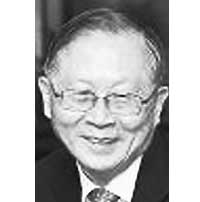
N. Korean school wants professors from South

An elite university in North Korea funded by outside groups hopes South Korean professors will be allowed to join its staff despite thorny cross-border ties, its chancellor said recently.
Park Chan-mo, the Korean-American chancellor of Pyongyang University of Science and Technology (PUST), said the North would welcome the professors, as they would help the school overcome a staffing shortage.
“North Korea is eager to have well-trained professors even though they may be of South Korean nationality,” Park told The Korea Times last week during a visit to Seoul. “Once (restrictions) are relaxed we will have no staffing problems because I know many South Korean professors want to teach at PUST.”
Seoul has maintained a travel ban to the North since 2010, when Pyongyang sank the warship Cheonan. Many observers, however, believe the December presidential election could nudge the South toward engagement.
The chancellor said that while politics have hampered the flow of donations from the South _ including needed medical supplies _ PUST was progressing toward its goal of providing students with the tools for greater interaction with the international community.
The vision, he said, is for the university to one day act as a reconciliation project like the jointly-run Gaeseong Industrial Complex in the North, where Koreans from both sides of the border and others interact.
Nearly two years after opening, PUST has begun to bloom into a bastion for ideas, the chancellor said. Students are enthusiastic to learn about capitalism and those in graduate school can access the Internet, activities once difficult to imagine in the autocratic state.
“I think North Korea is trying to use our university as a model for globalization,” said Park, a former president of Pohang University of Science and Technology in the South. “Of course, they can’t open up all the universities right away to things like the Internet. But they can test the effects.”
Pyongyang has shown hints recently of seeking greater interaction with the outside, revising laws on foreign investment and sending delegations abroad to study market principles, signals that have continued under new leader Kim Jong-un.
Originally conceived in 2001, the university was supported for a time by the South Korean government, which contributed $1 million for its establishment. But tensions forced private Christian organizations to pick up the funding slack.
Operated by overseas Koreans and others from around the world, PUST finally opened its doors in October 2010. The all-male student body comprises of 300 undergraduates handpicked from the country’s elite universities as well as 70 graduate students, a number soon to increase to 100. Courses offered include engineering, international finance and management, and agriculture and life sciences. English courses are mandatory.
Professors, who currently come mostly from Western countries, encounter no problems in teaching economics, he said. “The teachers told us they could only teach capitalism because that is what they know. The North Korean authorities said that was okay as long as that was what was taught in America.”
The university recently finished hosting the inaugural Pyongyang Summer Institute, which aims to catch the North up in the field of statistics and survey methodology. Organized by the American Statistical Association, the event brought experts from around the world, including two U.S. government officials, Park said.
PUST will soon send several students abroad to Yanbian University of Science and Technology (YUST) and Westminster University in London. Those traveling to YUST will study Enterprise Resource Planning _ systems that integrate information across all areas of an organization _ so they can introduce it to PUST.
He noted that North Korean professors recently deployed abroad to learn about market practices had been placed in “very important” government posts.
“I believe they are not only trying to learn but also put into practice a capitalistic economy. I think they are trying to improve the economic condition of their people.”
Park would like PUST to become a co-ed university, but he may not be the staunchest advocate for the change. “The students really want that,” he said. <The Korea Times/Kim Young-jin>


